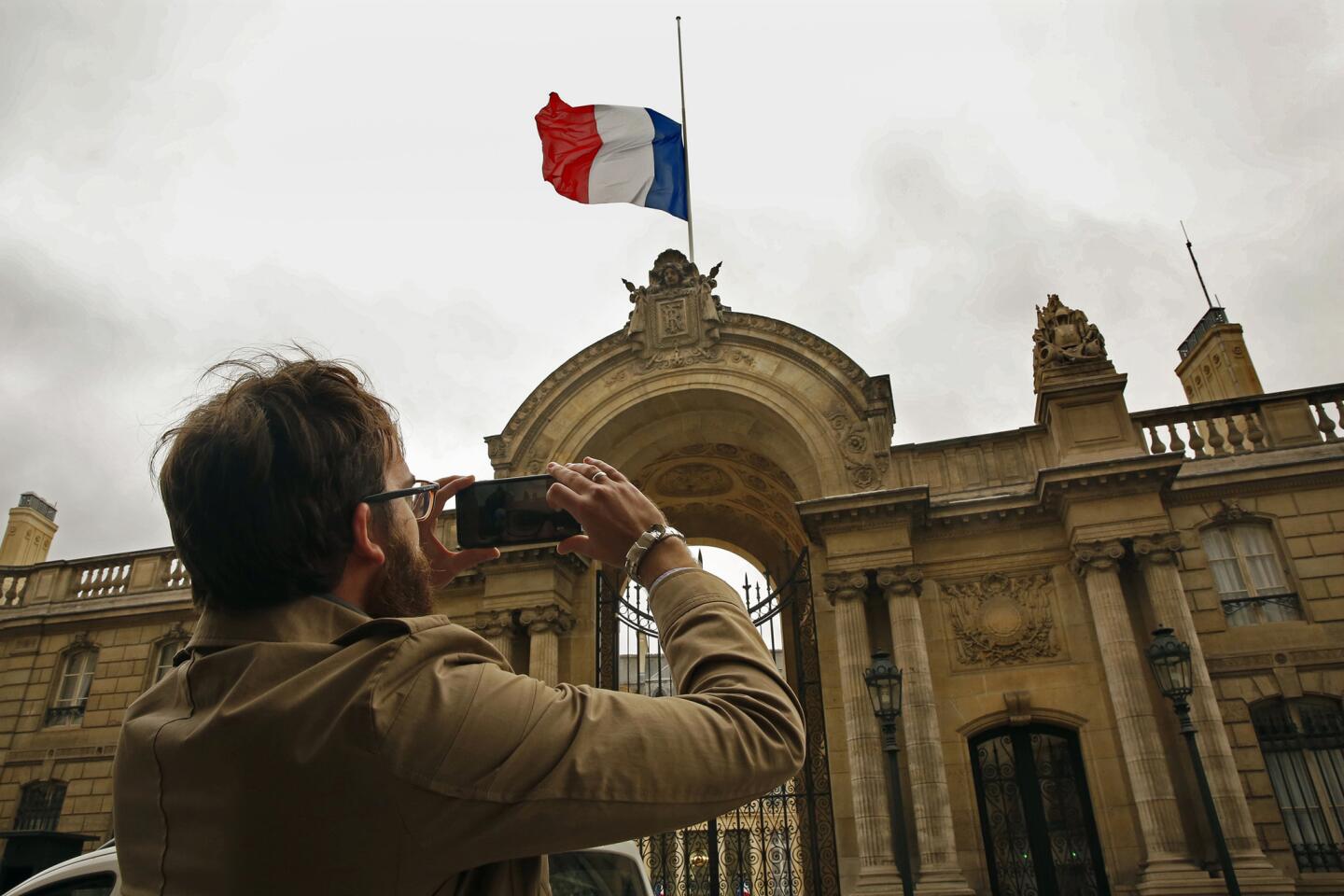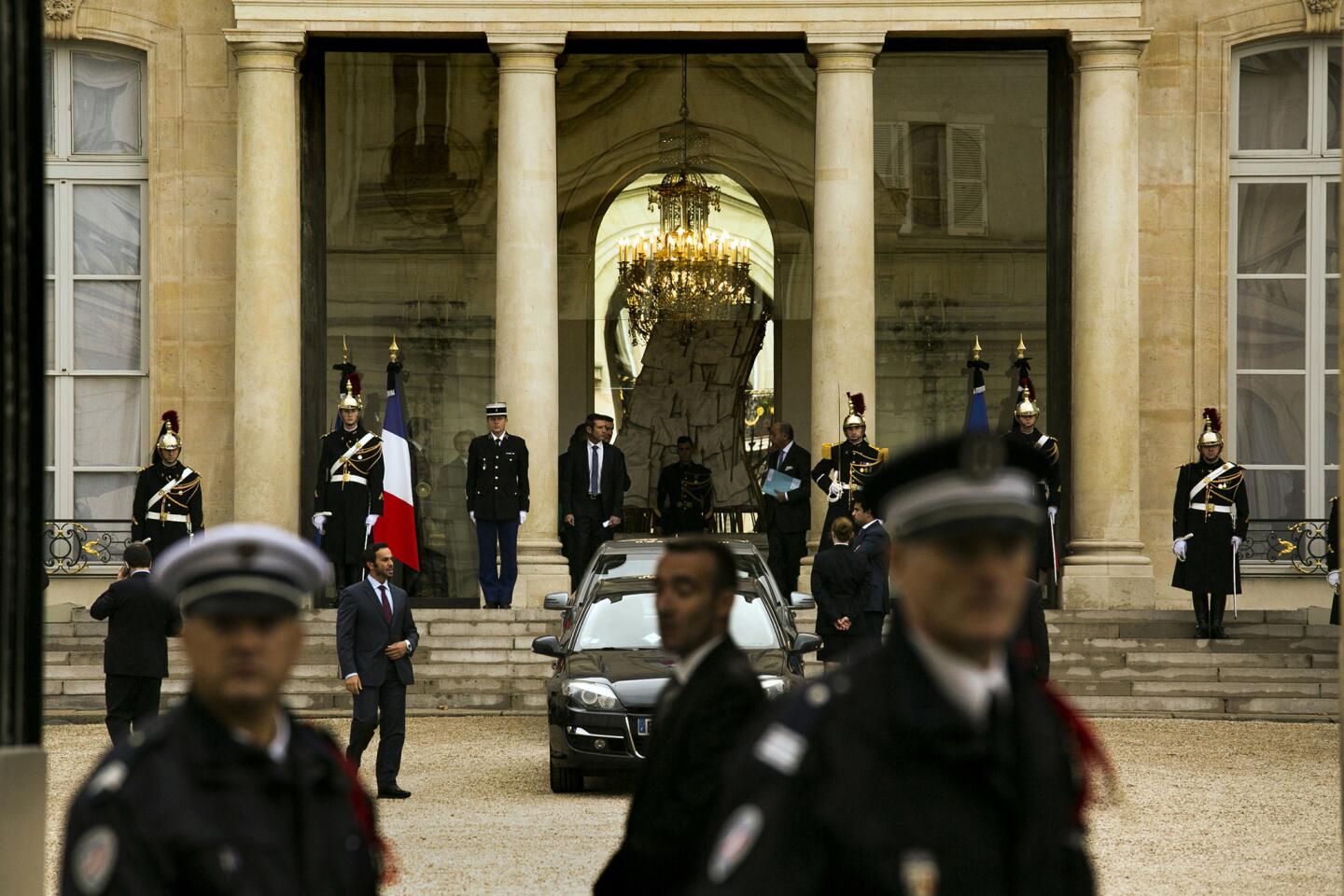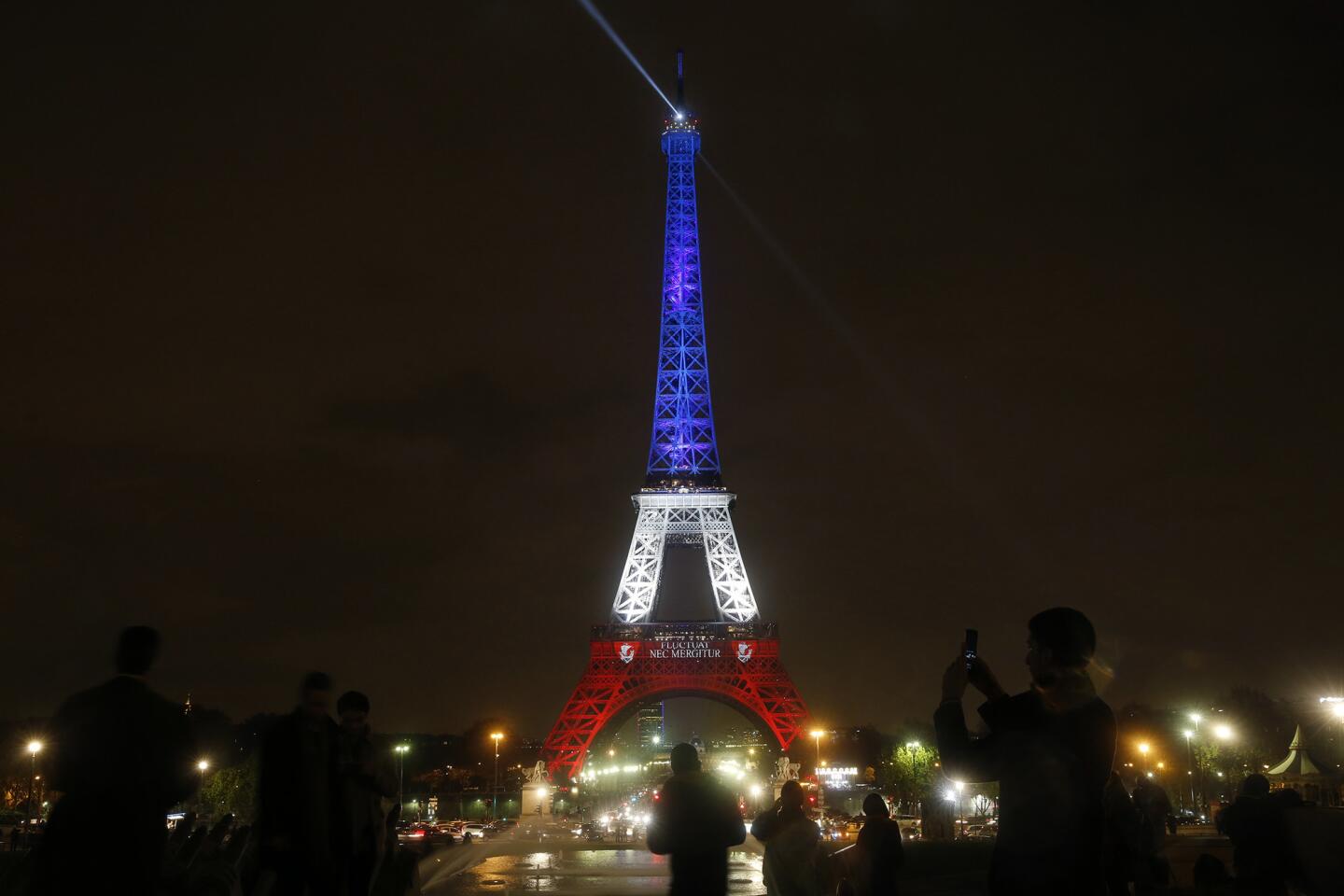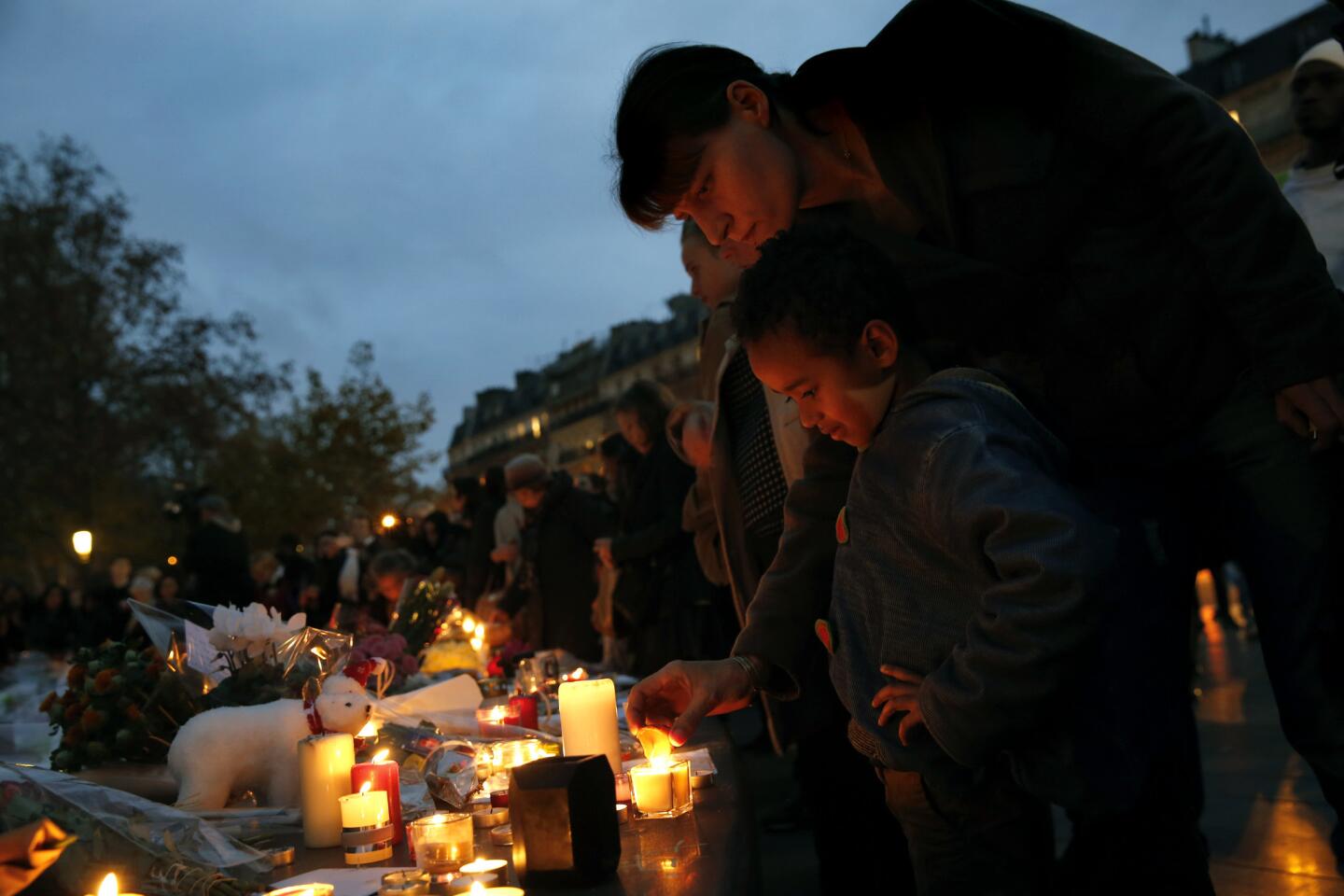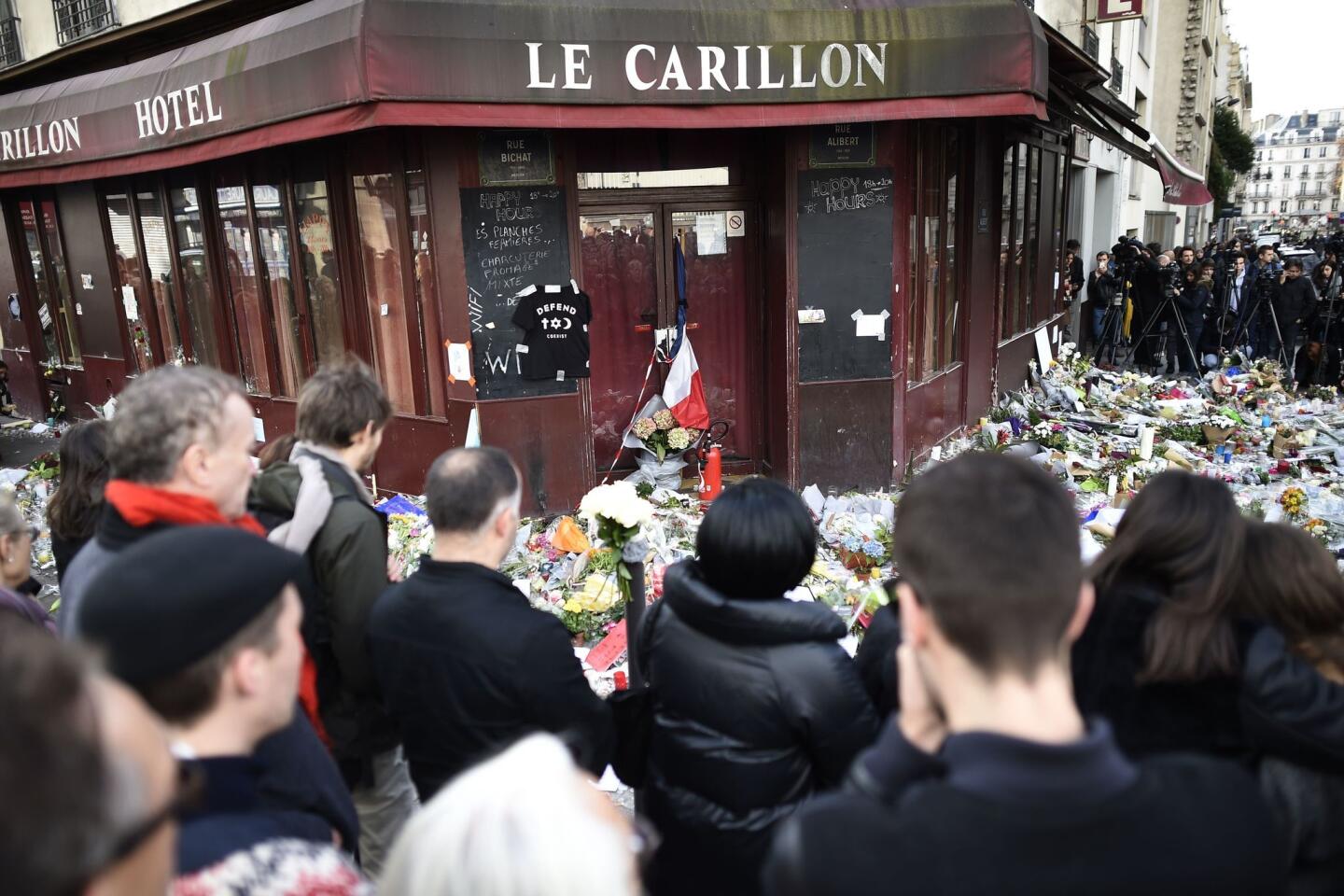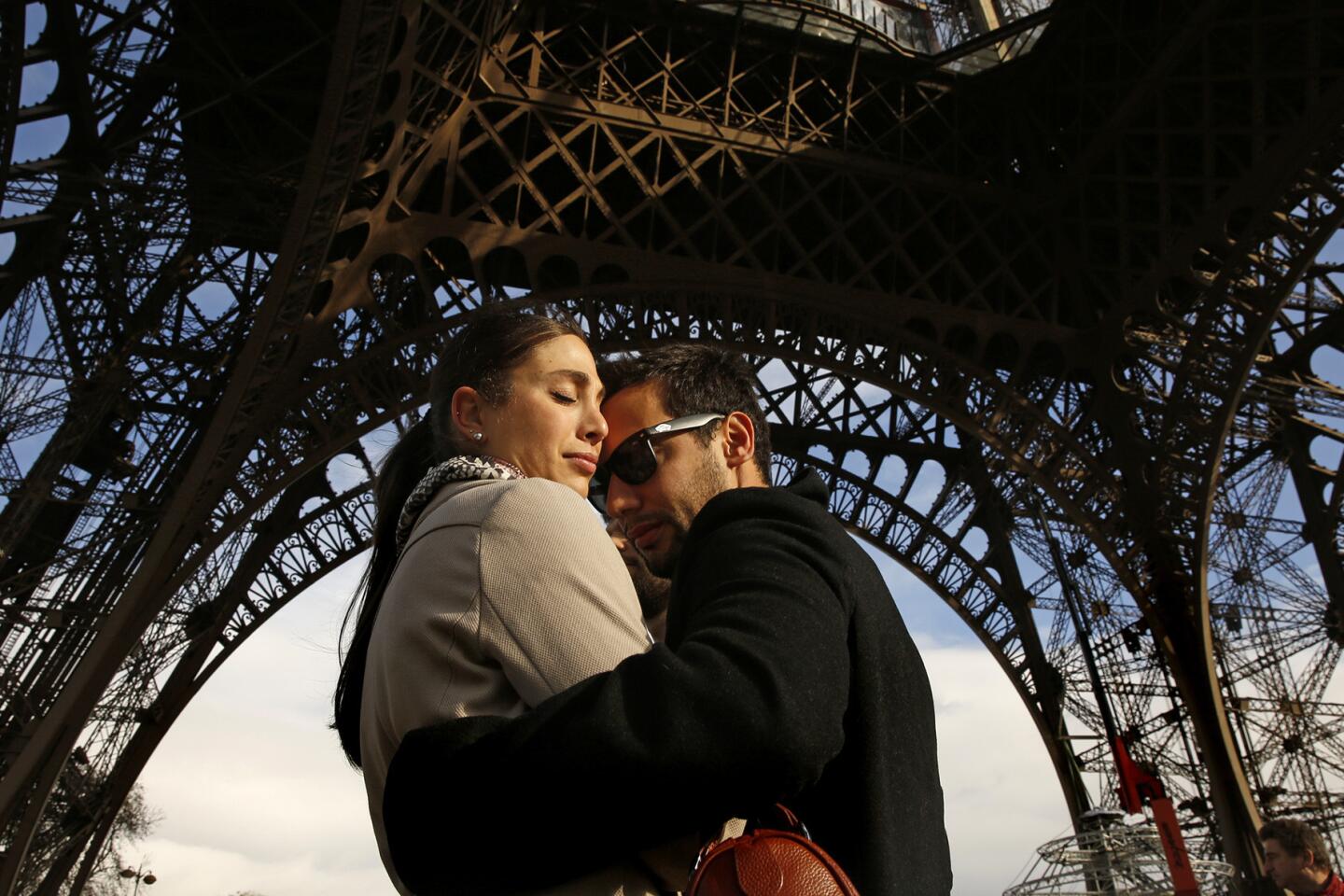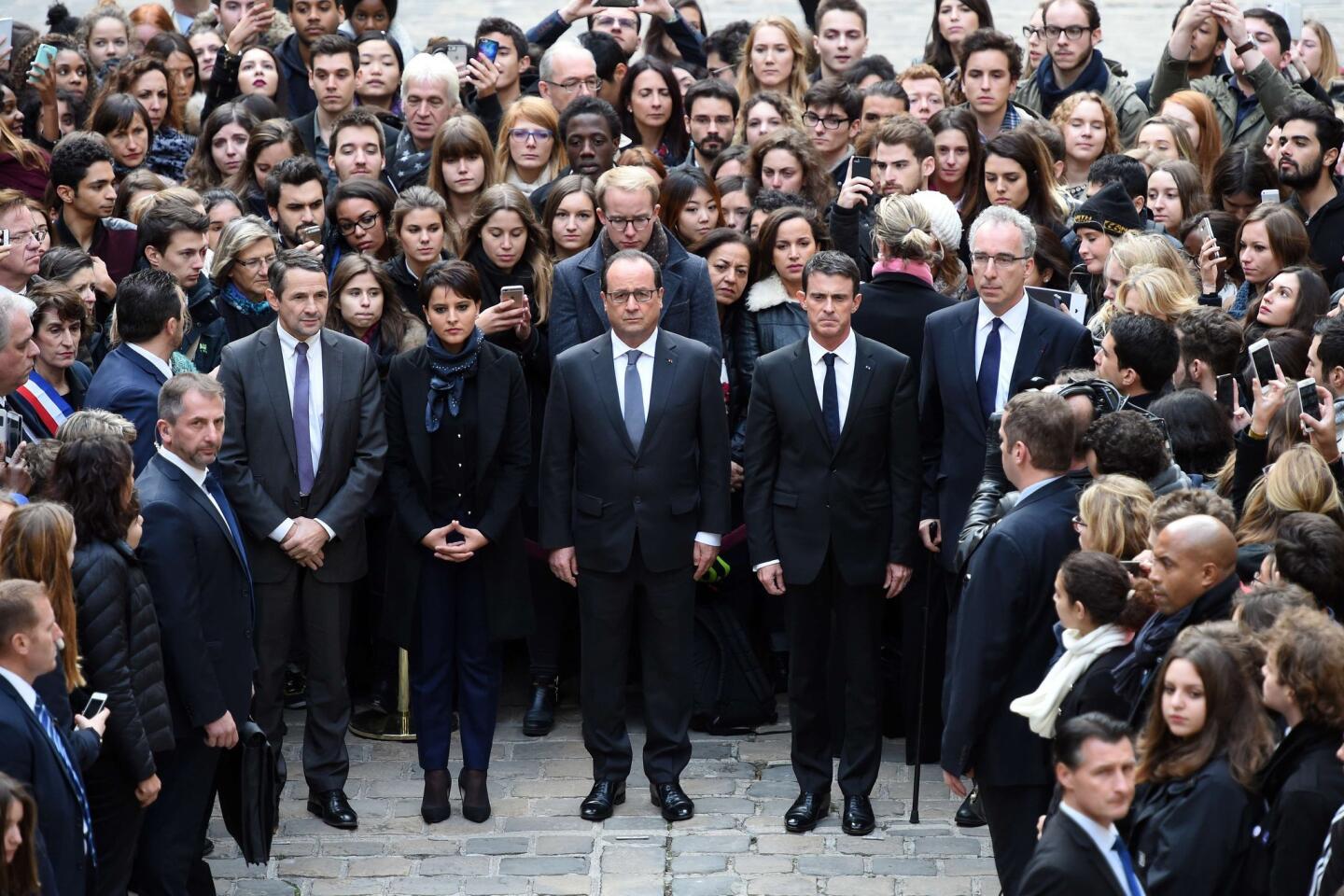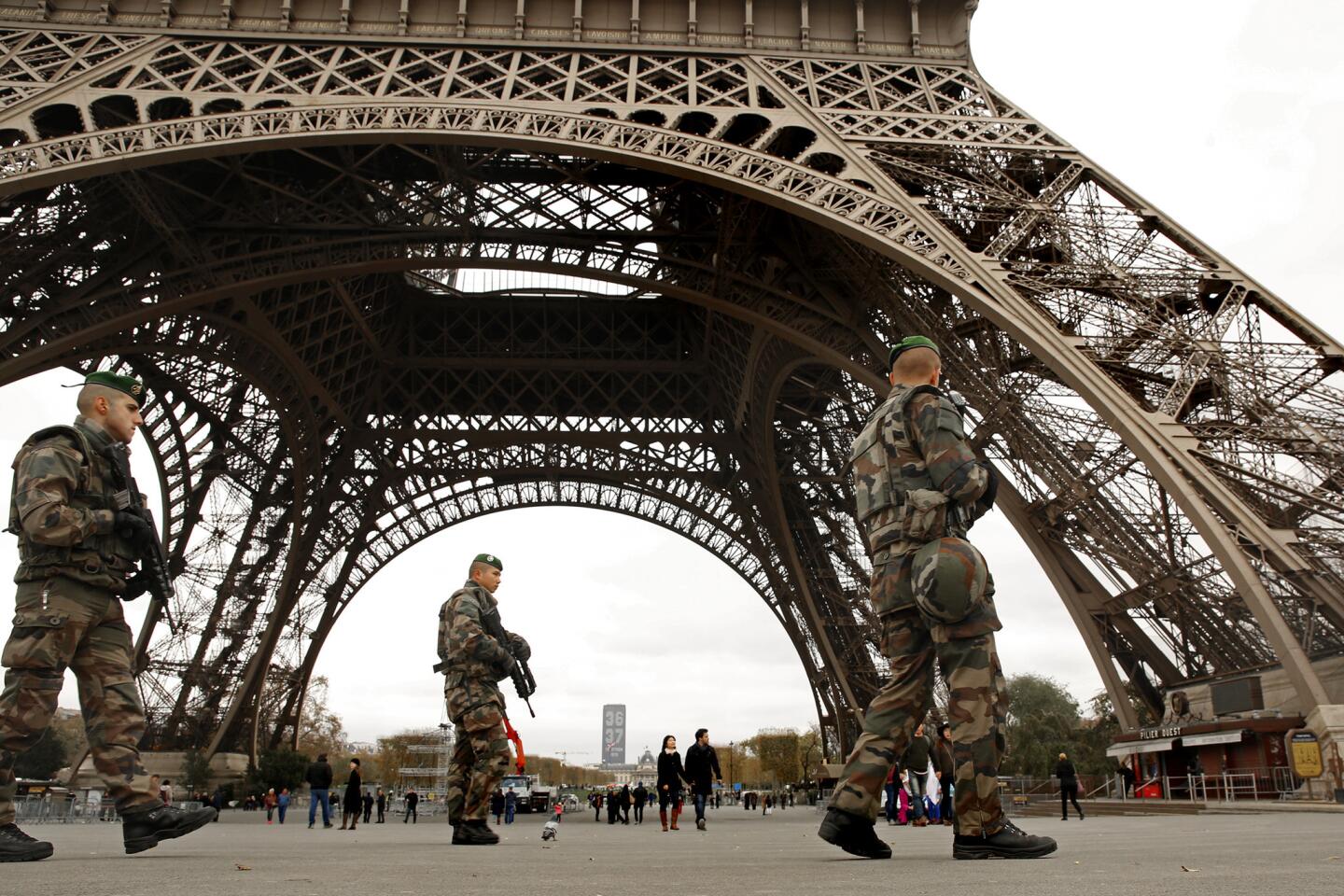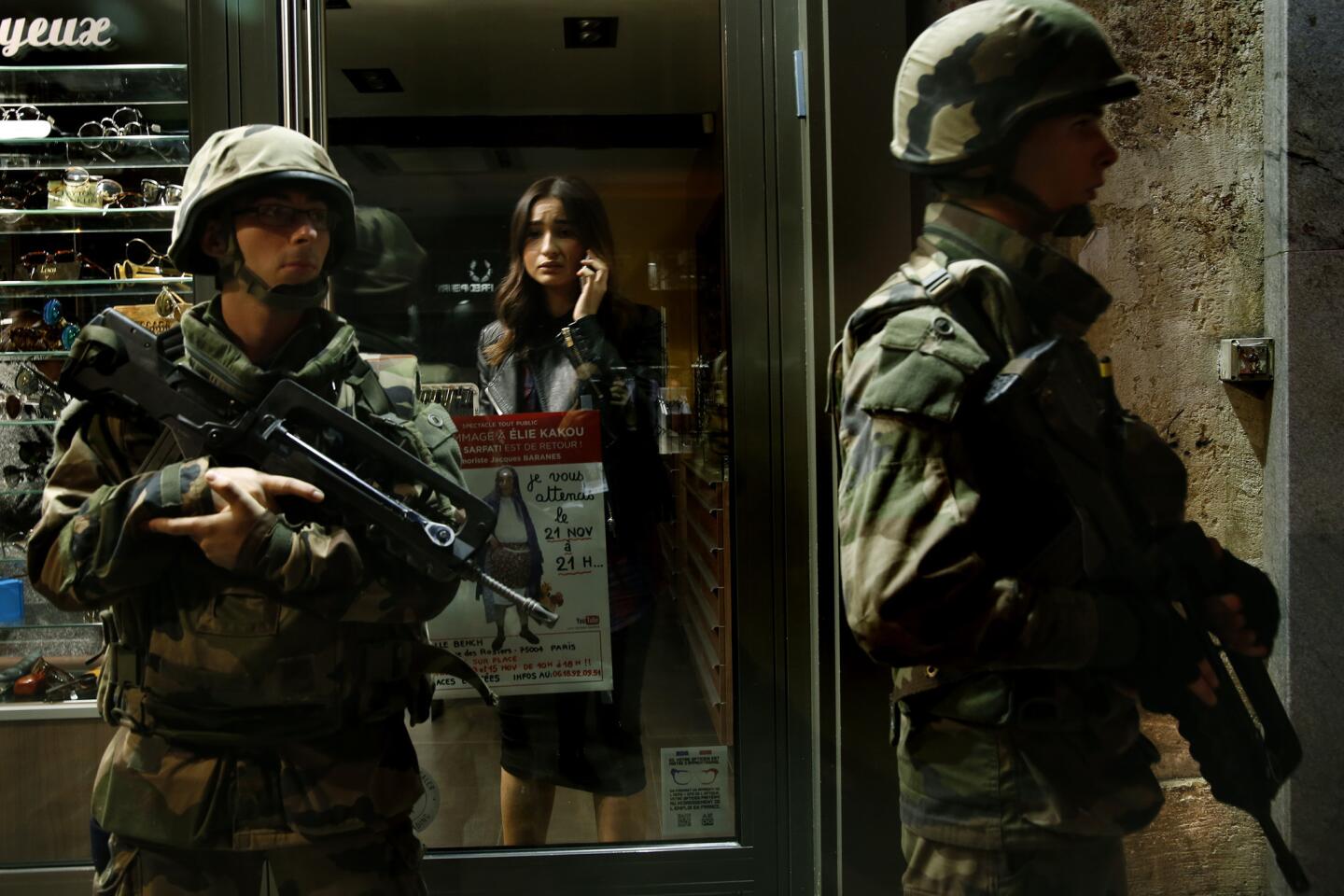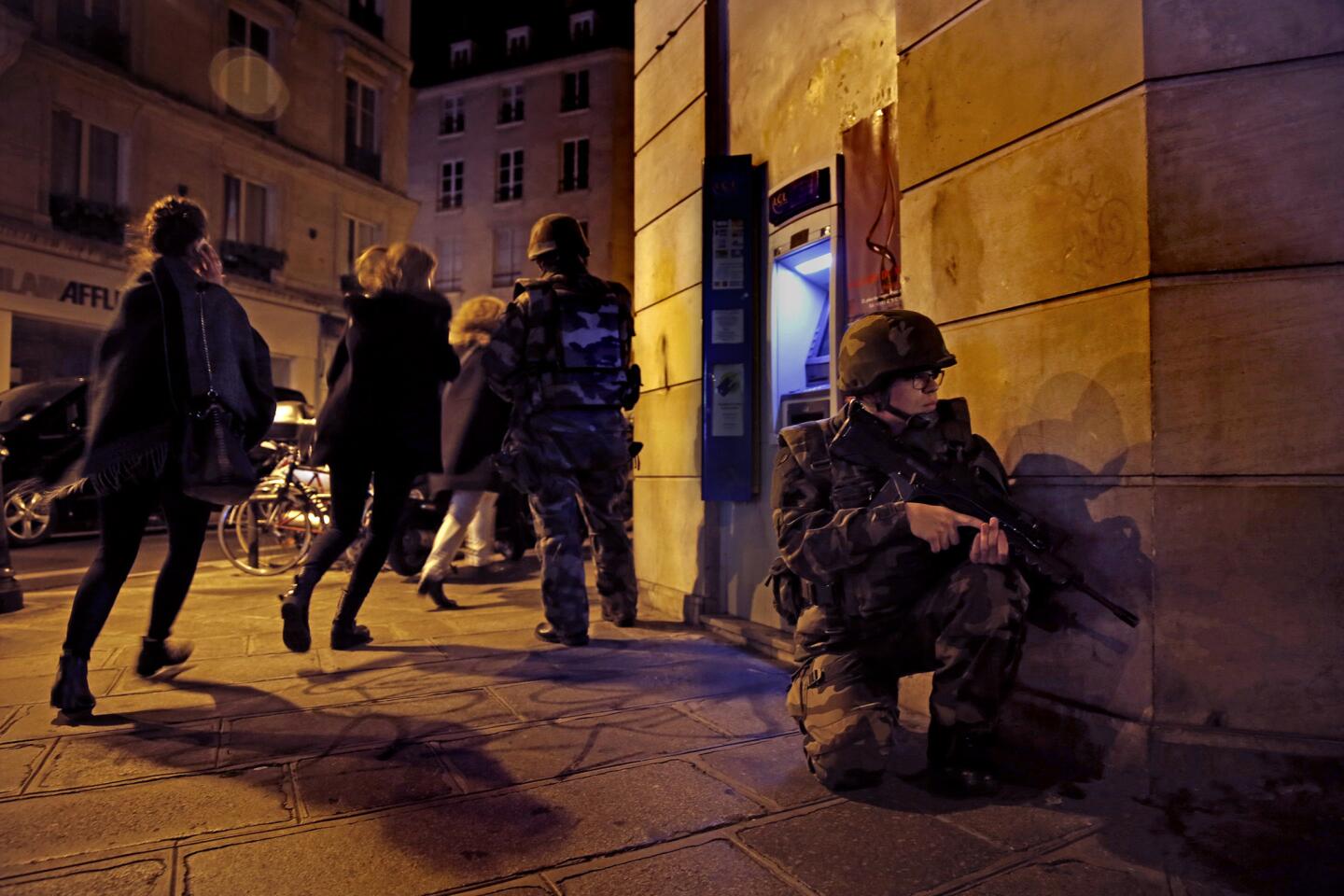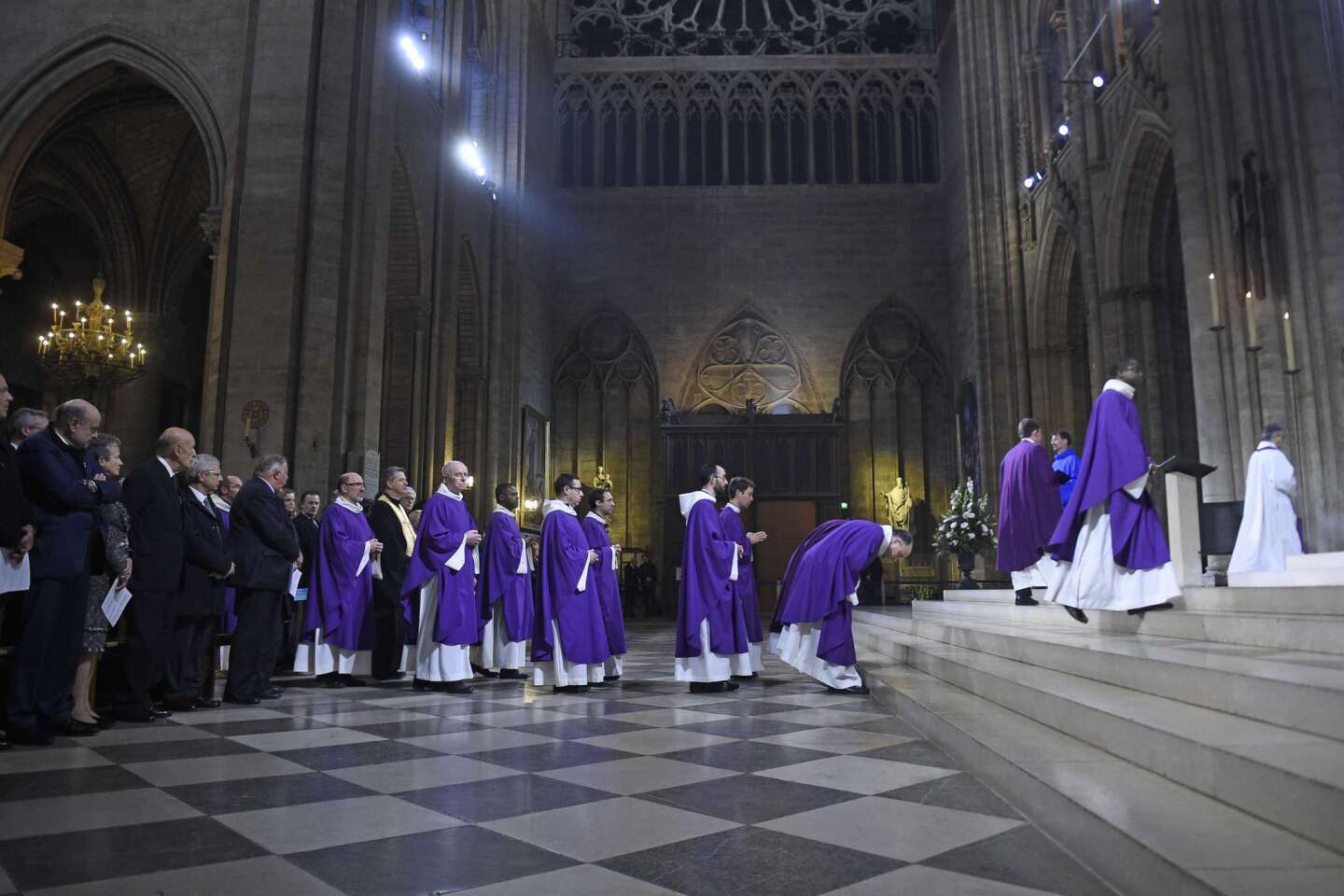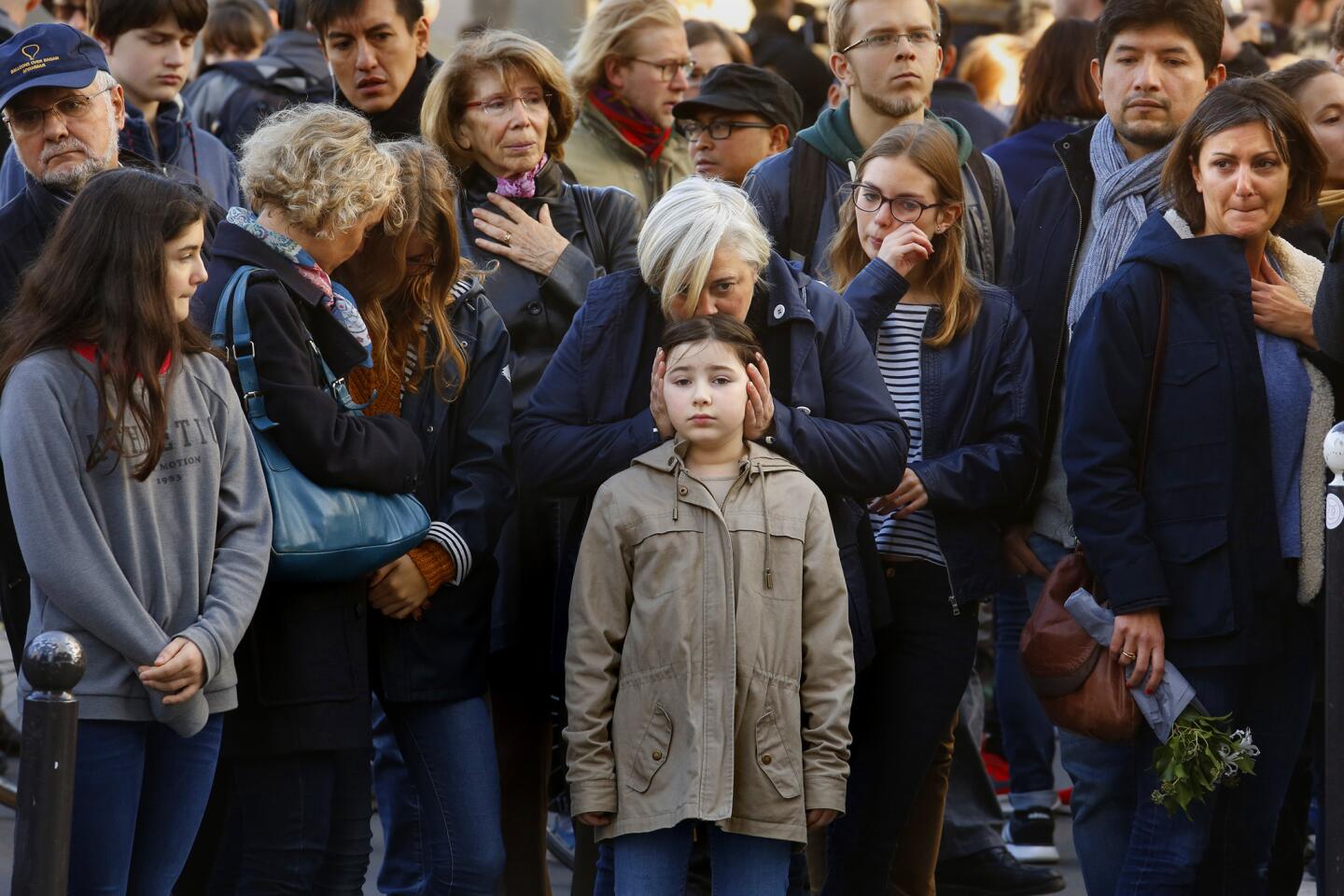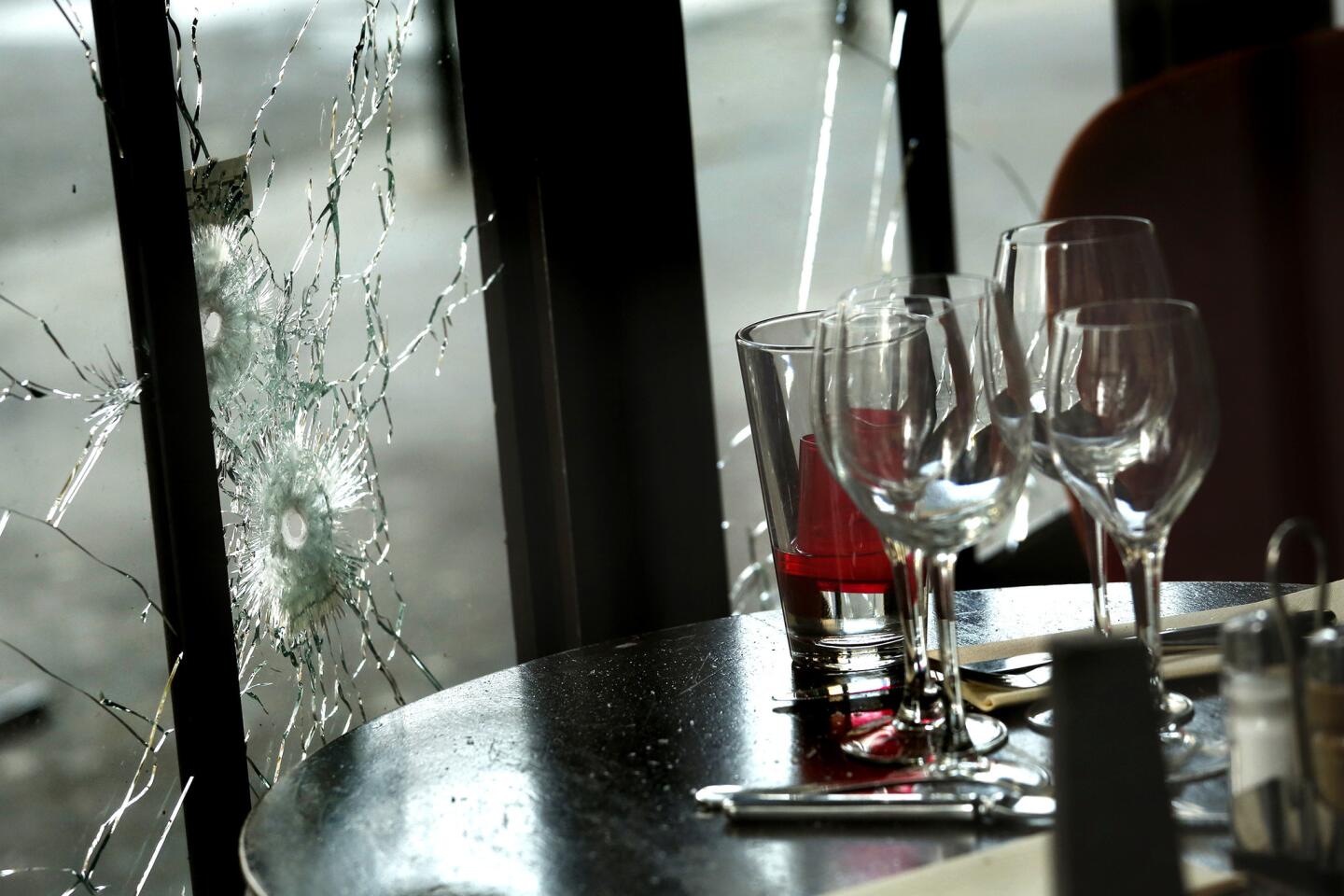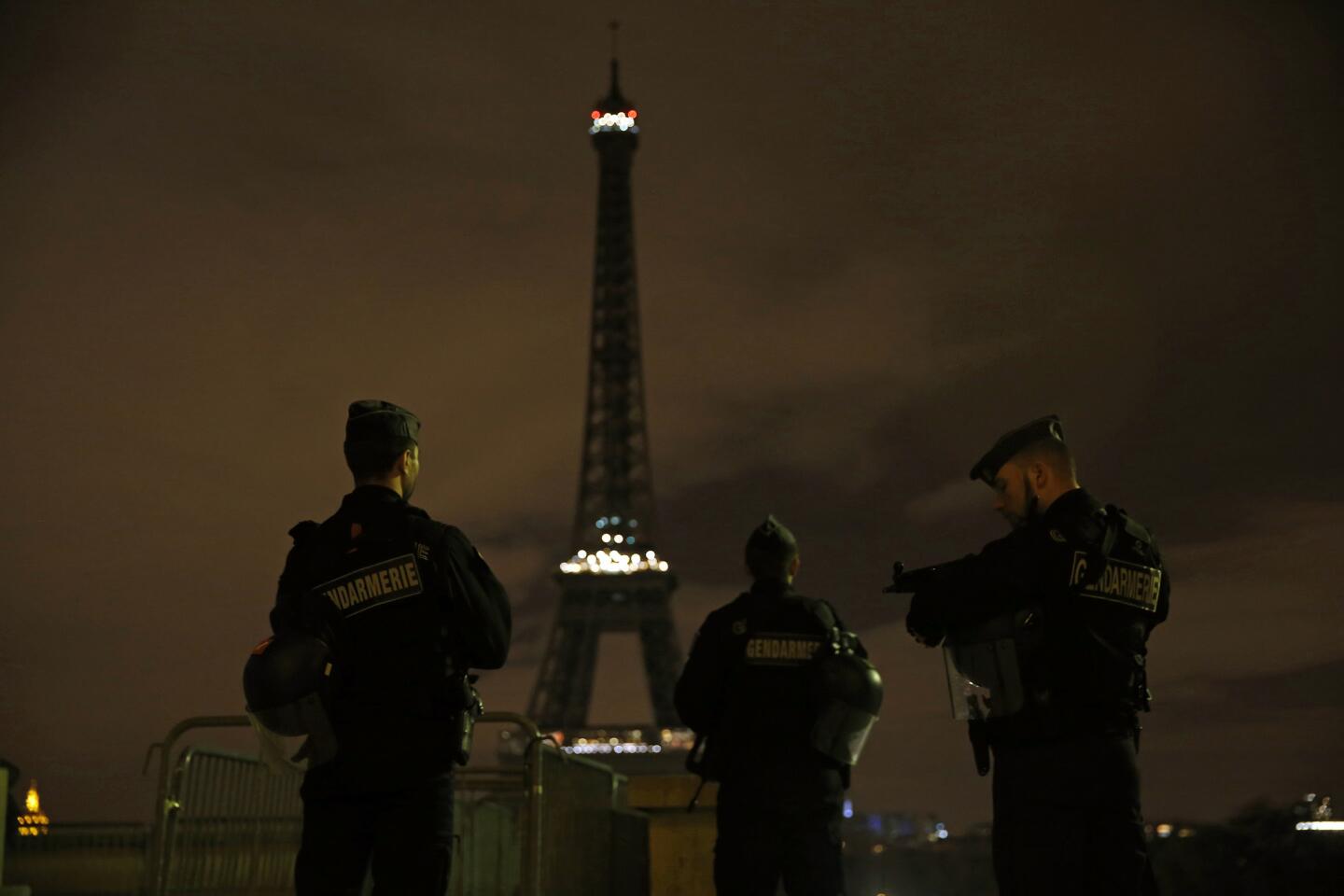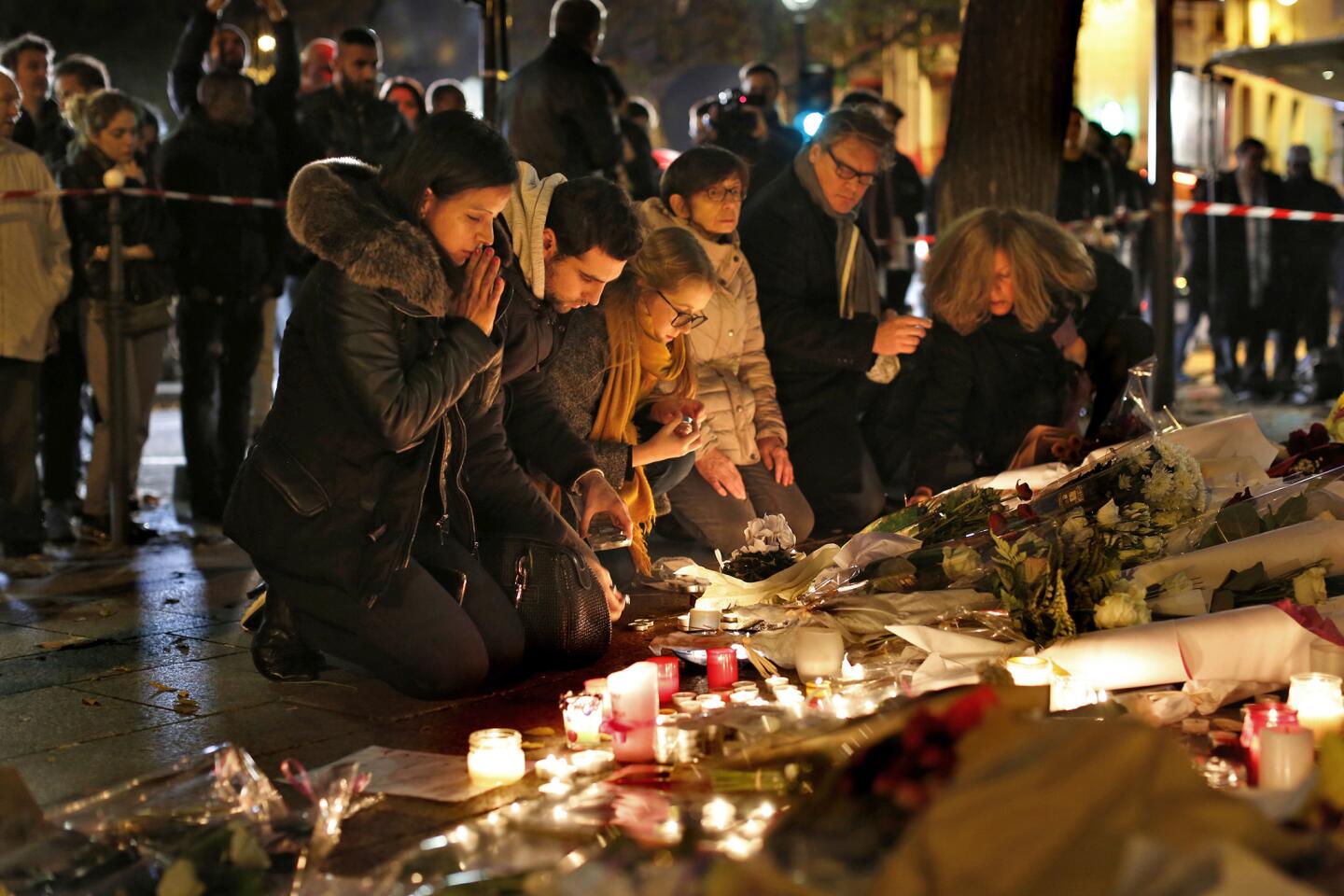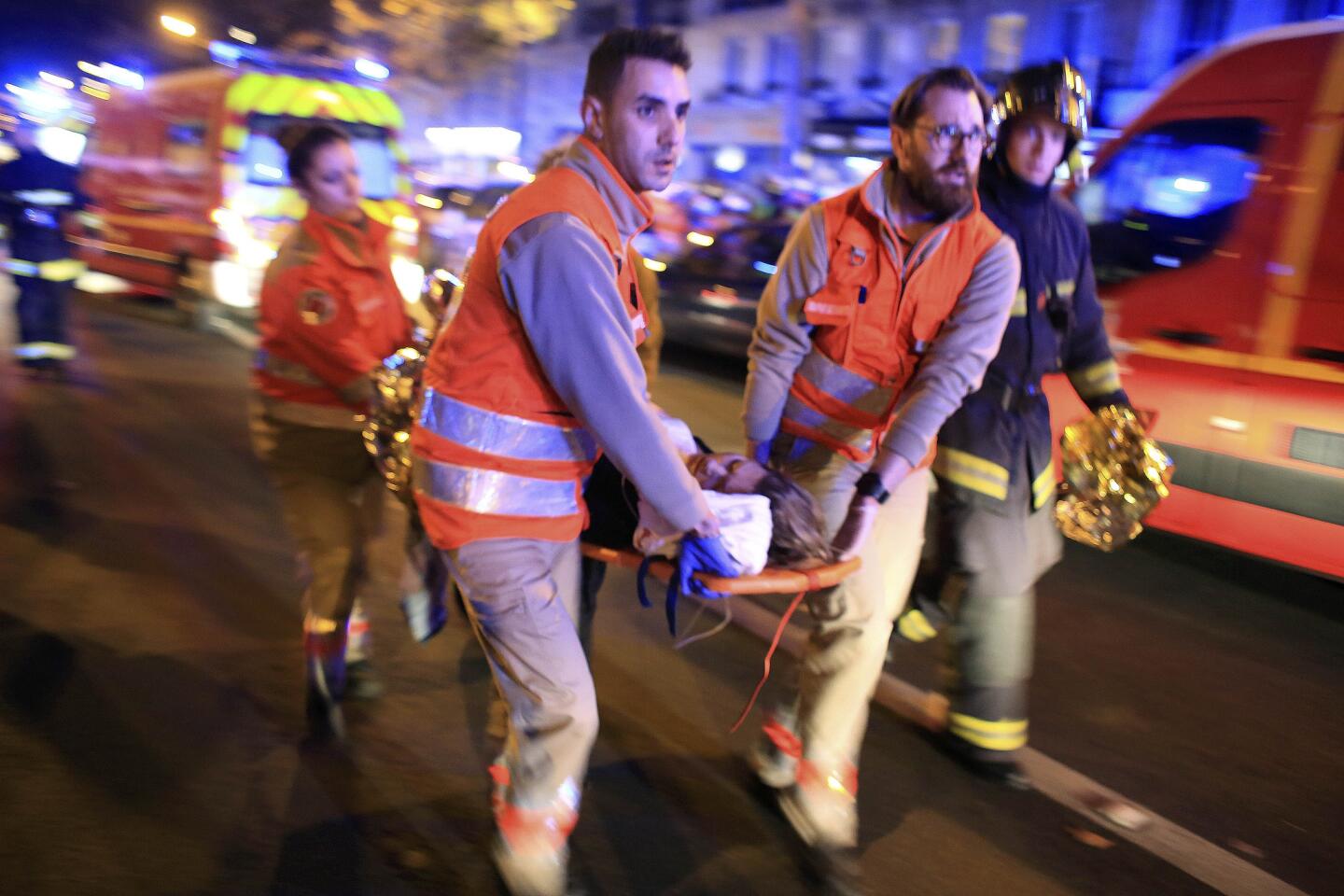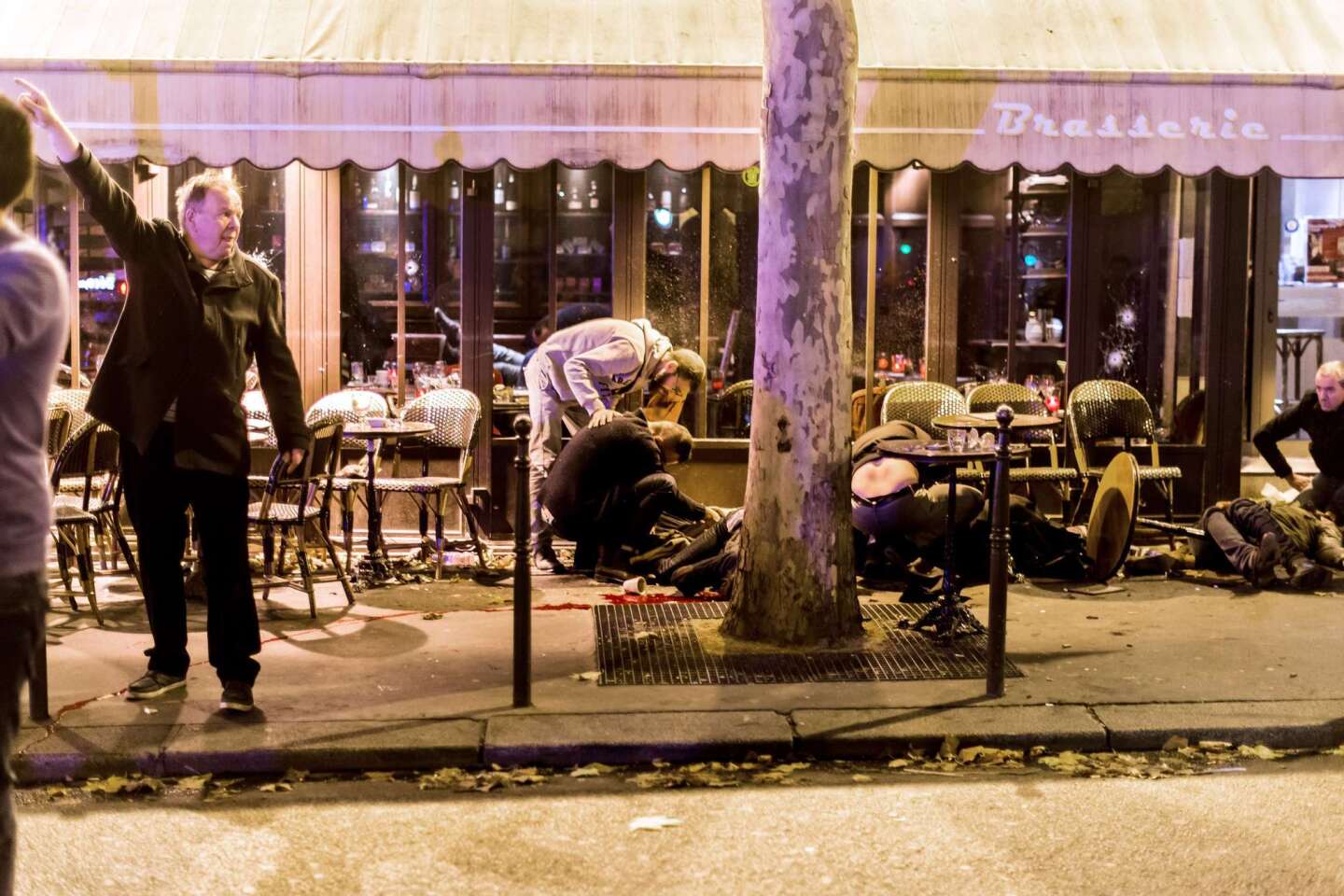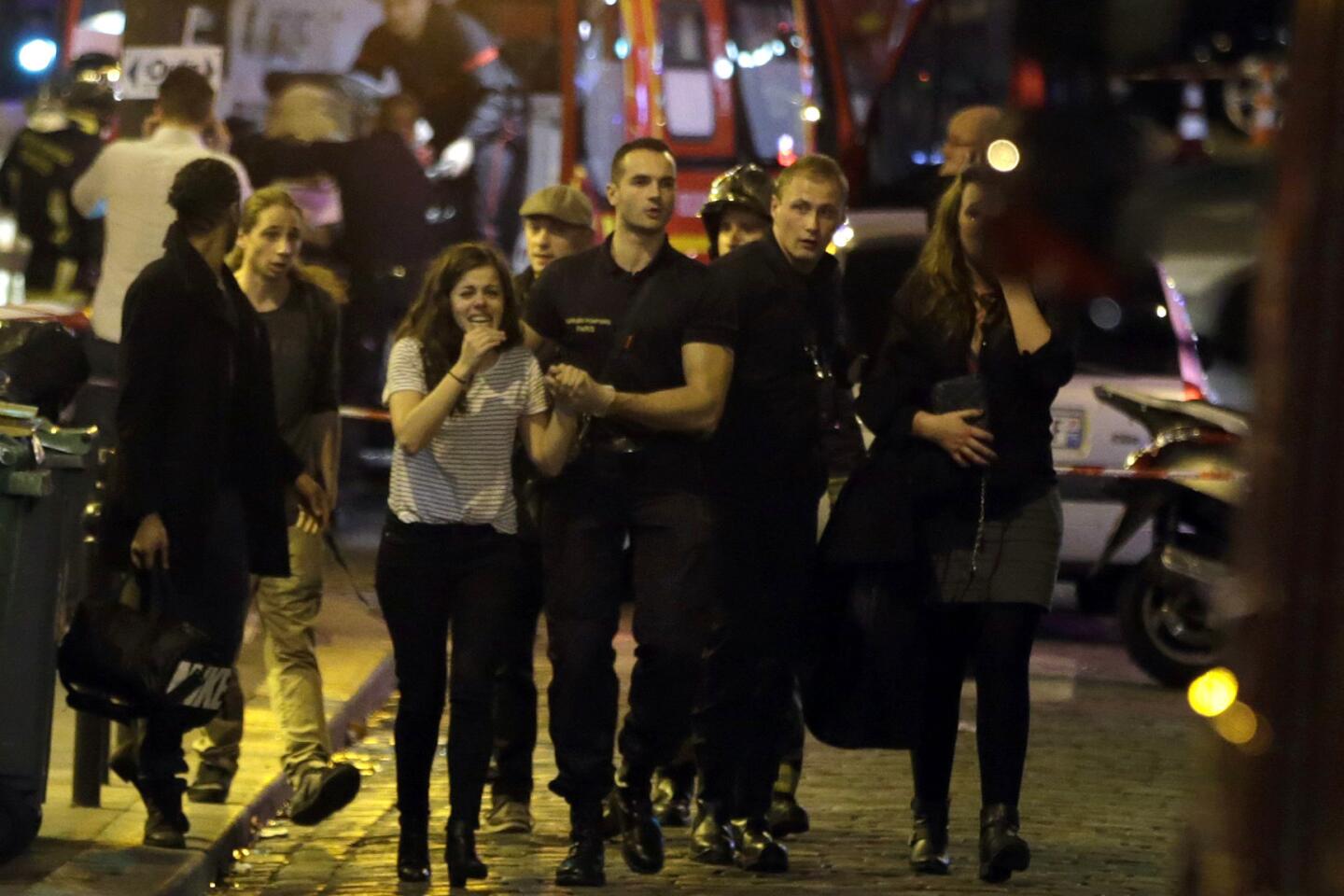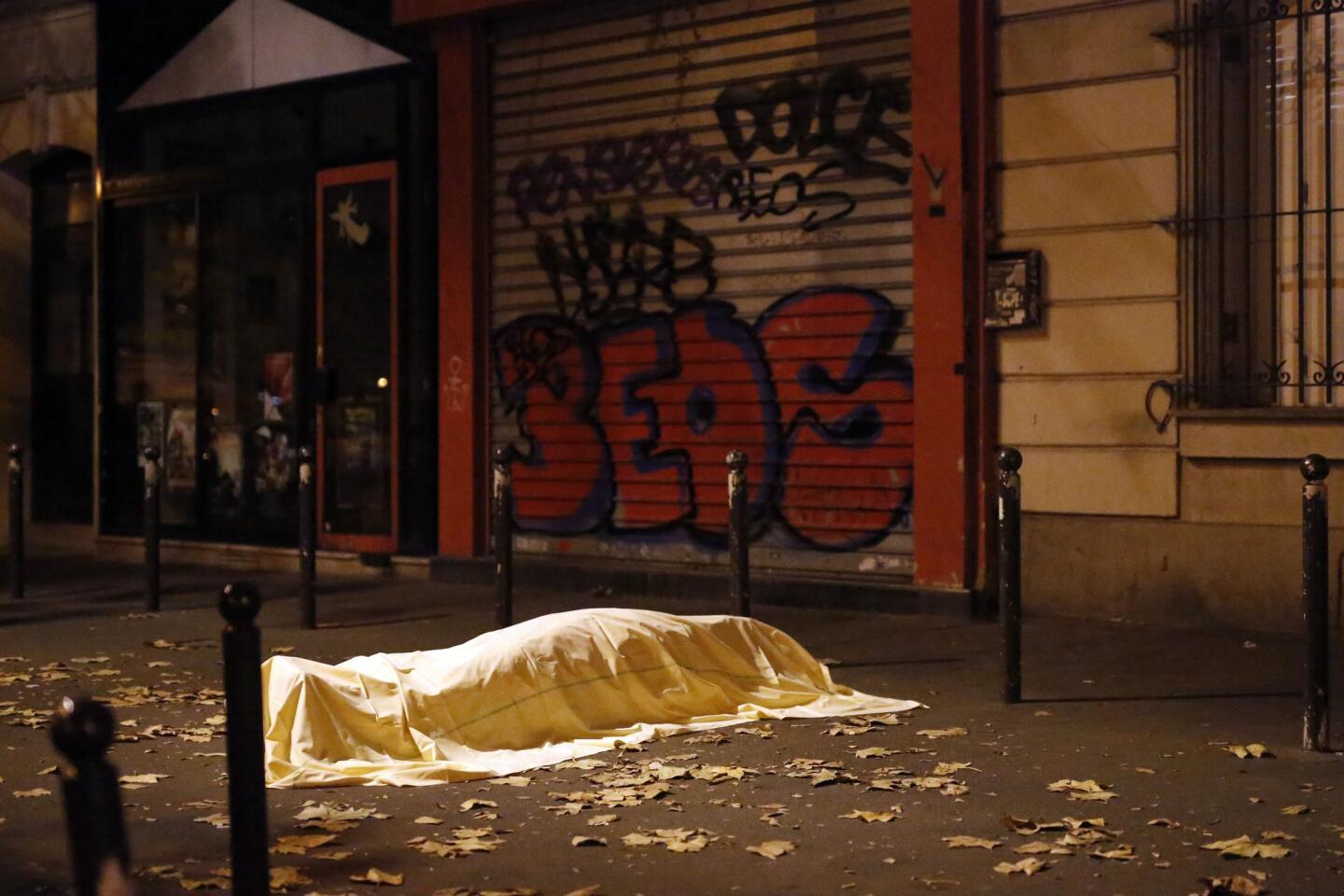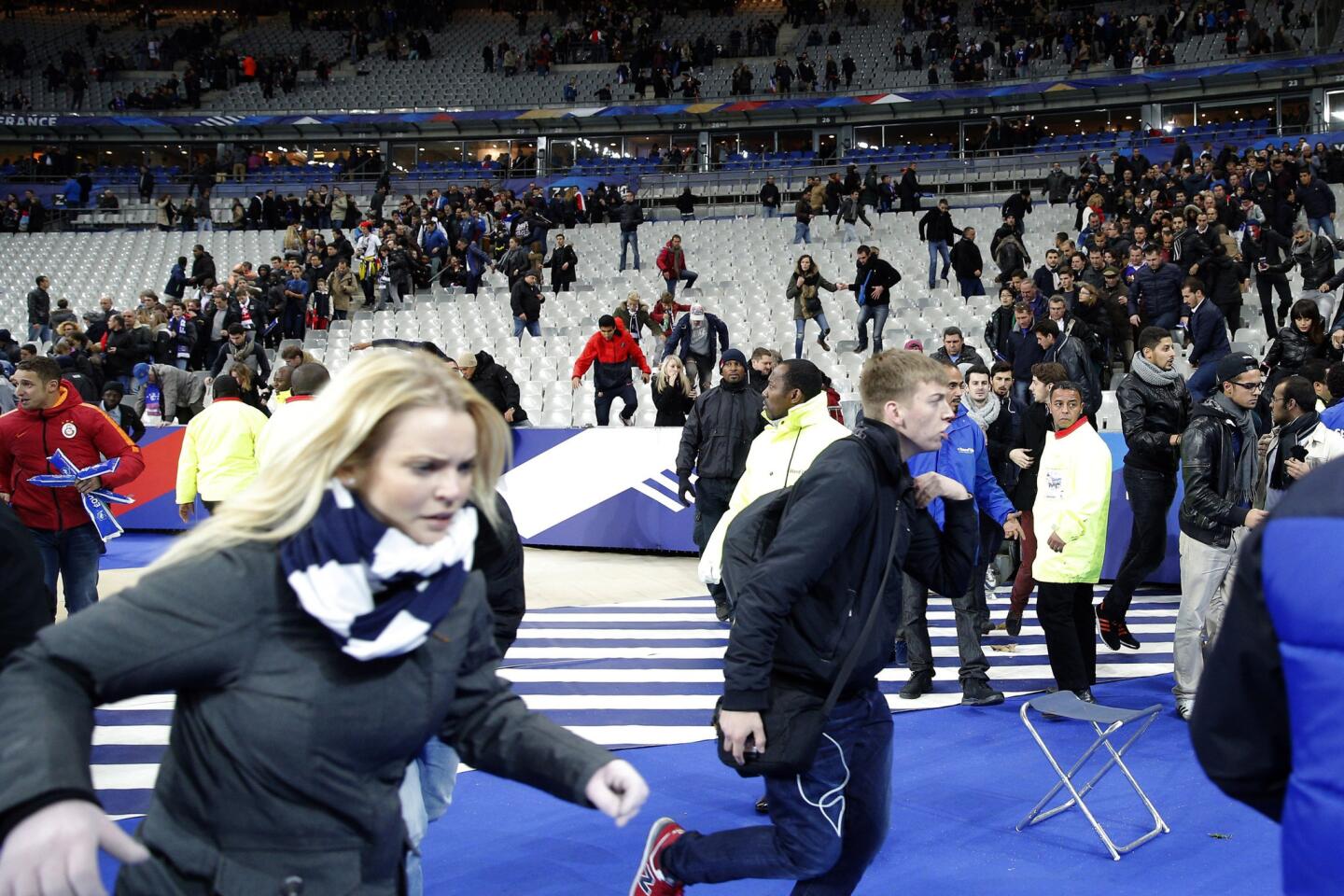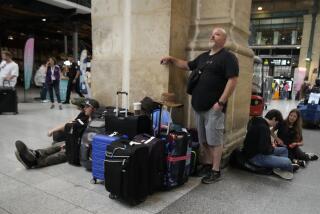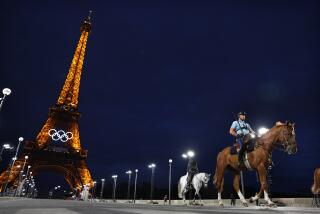Paris steps up security for United Nations climate change conference
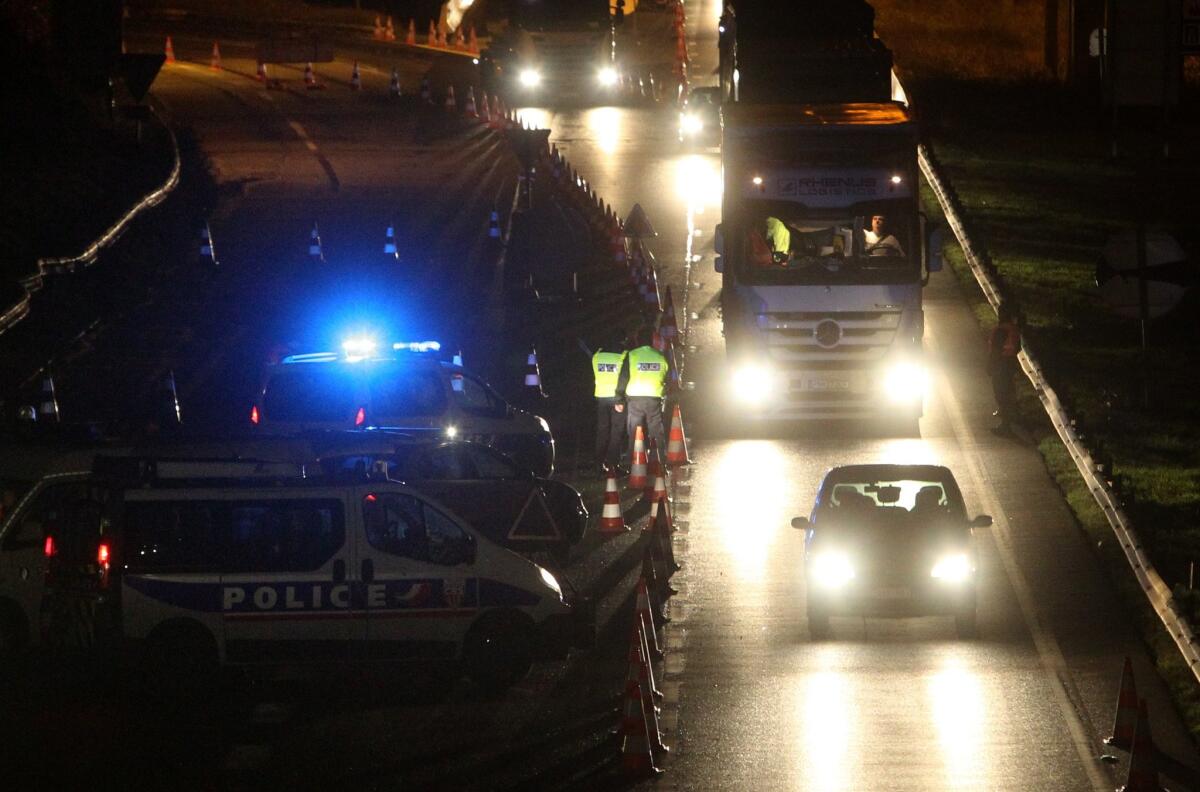
French police officers check vehicles on Tuesday at the border crossing to Belgium in Neuville-en-Ferrain as part of the hunt for fugitives wanted in connection with the Paris attacks.
Reporting from Paris — The popular gathering places – a concert hall, a sports stadium, busy bars and cafes – hit last week by shooting and bomb attacks presented extremists with ideal opportunities to inflict major casualties.
Now consider this as a potential target: a mass assembly of tens, perhaps hundreds, of thousands of people on the streets. The presence, in one place, of the world’s most powerful leaders and heads of state, including President Obama.
All that will be happening in Paris, a city still reeling from Friday’s bloodbath, in less than two weeks at a United Nations climate change conference viewed by many as the most important global environmental summit in years. The conference will run for nearly two weeks, starting Nov. 30, on the northern edge of Paris at Le Bourget, close to the historic airfield where Charles Lindbergh landed after his transatlantic crossing in 1927.
Even before the atrocities, the French government had billed the event as entailing one of the biggest security operations ever mounted in the nation’s history. Details of security arrangements are expected to be released in the coming days.
But after the attacks, which killed at least 129 people and wounded hundreds more, concern has been heightened about France’s ability to ensure anyone’s safety.
Officials announced Tuesday that 115,000 police officers, gendarmes and soldiers would be deployed across the country. Thousands of troops have descended on the capital; men in combat fatigues, toting automatic weapons, are a common sight at train stations, bustling squares and landmarks such as the Eiffel Tower.
The climate conference looks set to take place under an official state of emergency declared by French President Francois Hollande and extended by lawmakers. The designation grants police expanded authority to search buildings and detain people, among other powers, in the name of public security.
Hotel and tour operators have reported a wave of cancellations, and some foreign companies have scrapped corporate events, turning Paris into the City of Flight. But Hollande and his ministers have been adamant that the climate summit will proceed as planned and that it will be safe.
More than 100 heads of state and government, including Obama, have accepted invitations to attend the opening days of the conference. French Prime Minister Manuel Valls said that no world leader had requested postponement of the summit, an event he called “crucial to the planet’s future.”
Canceling or even delaying the conference would present organizers with a logistical nightmare. It could also send the wrong political message and hand Islamic State, which has claimed responsibility for the Paris assault, an enormous propaganda victory.
“Let me appeal to all world leaders that we meet in Paris,” Donald Tusk, president of the European Union, said Sunday at the Group of 20 summit in Antalya, Turkey. “We must demonstrate that the world is united in our fight against climate change, but also show solidarity against terrorism. Our presence in Paris should be a sign that the world is not intimidated.”
But keeping dignitaries safe will not be the only, and perhaps not even the biggest, headache for French security forces.
Thousands of activists are expected to converge on Paris for protests, sideshows, satellite meetings and other activities through the duration of the conference, starting with a huge showcase march to kick off their campaign Nov. 29, the day before the summit formally opens.
Securing such an event, one that by nature encourages as many people to attend as possible and that someone bent on wreaking havoc or violence could easily slip into, is a massive challenge.
By uneasy coincidence, the government-approved route of the march, from the Place de la Republique to the Place de la Nation, will take marchers past some of the sites attacked Friday, including the historic Bataclan concert hall, where at least 89 people were killed by militants who burst in and sprayed the crowd with bullets.
Juliette Rousseau, a spokeswoman for the Climat 21 coalition of environmental and social-justice groups, said her organization had been working with the government for more than a year on security arrangements. She and other activists were blindsided by Valls’ statement this week that some events surrounding the climate summit, including the Nov. 29 march, might have to be canceled.
Though public protests are technically forbidden under the state of emergency, trying to shut down the march and other activities would be unacceptable, Rousseau said. She acknowledged that the attacks have complicated the picture, but even before Friday the government was developing a security plan that took the threat of terrorism into account.
“They knew that the situation was risky and were working in that context,” Rousseau said, and Climat 21 is “ready to work even more with the government to make sure our mobilization is safe. But we can’t accept an argument that basically tells us we shouldn’t go on the street anymore.”
Turnout could be damped by safety concern among activists themselves, particularly those who plan to come from abroad.
Rousseau noted that thousands of Parisians have defied the emergency ban on public assembly to gather and show their resistance to the fear the terrorists hoped to sow.
But one of those spontaneous demonstrations, in the Place de la Republique, descended into chaos when participants mistook some loud noises for gunshots and scattered in panic.
Jean-Claude Allard, a security and defense expert at the French Institute for International and Strategic Affairs, said it was right for the conference to go ahead, because otherwise, “that would be a kind of victory for the Islamists.”
Islamic State is no doubt trying to learn something from why most of the suicide bombers last Friday wound up doing little damage, Allard said. The three who struck the Stade de France sports arena and the one who detonated his explosives outside a cafe managed between them to kill only one other person.
But given the planning and organization that such a coordinated assault requires, Allard said, it would be a stretch for Islamic terrorists to try to mount another large operation so soon afterward.
“The gendarmerie, police and even the army will be dispatched around the French territory, and that could be difficult even for a terrorist to try to do something,” he said. “But the problem is that we aren’t able to [sustain] that in the long term.”
As long as the conference is on track, Rousseau said, so are the plans of her organization and others to attend and keep up the pressure on delegates to commit to serious steps to prevent ecological disaster.
“We need to make sure that our mobilizations are safe,” Rousseau said. “But in the meantime … we can’t accept to be ruled by fear.”
Twitter: @HenryHChu
ALSO
Jeb Bush breaks from GOP candidates and says U.S. should accept refugees
4 passengers taken from plane and questioned in case of jitters in Baltimore
France hits Islamic State using 10 fighter jets in new airstrikes; two suspects charged
More to Read
Sign up for Essential California
The most important California stories and recommendations in your inbox every morning.
You may occasionally receive promotional content from the Los Angeles Times.
